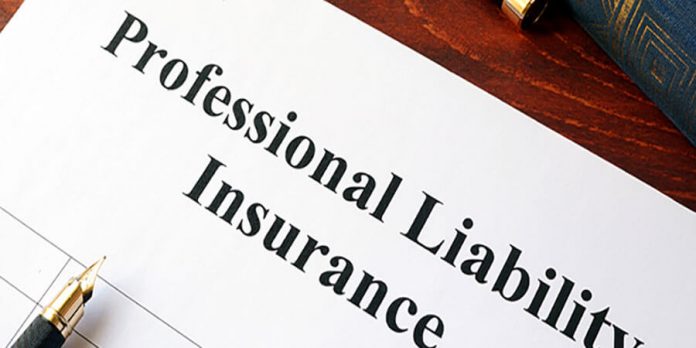This article is written by Aditi Lahiri, pursuing a Diploma in Business Laws for In House Counsels from LawSikho.
Table of Contents
Introduction
An insurance policy may be defined as a contract between two parties, through which, in return for certain mutually agreed consideration, called premium (either lumpsum or in instalments), the insurer guarantees to indemnify and reimburse the insured entity in case of financial loss up to a pre-decided maximum amount, in case of occurrence of a specific set of events during the term of the contract, otherwise known as the term of the policy. The financial protection received from an insurance is contingent on the happening or non-happening of some specific events as decided before entering into the contract. Insurance policies are of various types, including but not limited to life insurance, health insurance, fire insurance, etc.
What is Professional Liability Insurance
Professional liability insurance (PLI) is also otherwise known as errors and omissions insurance or professional indemnity insurance. Such an insurance indemnifies a professional or a business against financial losses arising in the course of business from legal claims made by clients against the professional or the business on grounds of negligence, malpractice, misrepresentation etc. For a professional liability insurance to cover an event, two main conditions have to be met – firstly, there has to be a valid contract in place between the client and the insured entity and secondly, there has to be a deficiency in service on the part of the insured entity. While the word ‘Professional’ hasn’t been defined by the law, professionals are usually taken to be experts or skilled people like doctors, lawyers, chartered accountants, architects, etc., who provide consultations and other required niche services to their clients in return for hefty compensations. Such insurance policies protect these individuals or business establishments against legal accusations made by their clients claiming negligence, errors etc. which can result in significant financial loss for the entity.
Originally, the concept of indemnifying an entity against financial liabilities arising from third party legal claims originated in the U.S. However, courts were originally not in favour of such insurance coverage. In the case of Northwestern National Casualty Co. vs. McNutty, the Court, while deciding on the matter of insurance coverage, ruled that the opportunity to shift the financial burden of paying the damages awarded by the court to the insurance company in case of a deficiency would undo the purpose of the punishment itself. However, this idea was overruled by the court in Lazenby vs. Universal Underwriters Insurance Company, who decided that the lack of insurance cover was highly unlikely to deter the irresponsible persons concerned from providing deficient service.
How does the policy work
In India, the policy indemnifies the entity on a claims-made basis against all financial losses, including all costs incurred during the legal proceedings like the fees for legal representation in the case and the financial compensation to the client as awarded by the Court etc. For example, if an accountant or accountancy firm is sued by a client for making clerical errors in a financial report which caused the client significant financial losses, if such entity has professional liability insurance, it would be reimbursed for the damages they have to pay to the client. However, it should be noted that the policy only indemnifies the entity in case of civil accusations and not in case of criminal offences. It is also unlikely to cover offences such as breach of contract, cost of contract, personal injury, defamation, libel etc.
In some countries like the UK, it is compulsory for professionals such as solicitors to maintain a professional liability insurance. However, as the concept is still not that common in India, it is not mandated under any statute for professionals to get one, but completely up to the free will of the entity to take out such a policy. For that matter, professional liability insurance is not governed by any particular statute but is subject to general provisions of contract law. While most medical establishments and practitioners choose to opt for professional liability insurance due to the high-risk factor of the profession, it is still rare among other professionals such as advocates, solicitors, accountants etc.
Investing in professional liability insurance is often a wise choice for a variety of professionals and businesses, especially those that work with end customers directly. Such insurance is an important risk management tool for the insured party. In case of legal cases and claims, entities suffer enormous financial losses and even risk bankruptcy due to the sudden and unplanned financial strain. Even in case of highly competent and honest professionals, the chances of a client being dissatisfied with the service or something going wrong by sheer luck cannot be discounted.
Clients appreciate the guarantee of being compensated in the event of something going wrong, even if the entity itself is unable to afford the payment. Hence, not only do clients find it comforting to work with businesses and professionals that have professional liability insurance, some clients may even refuse to work with those who don’t have it. Having such a policy would also allow the entity the opportunity to offer a financial settlement to the aggrieved client in exchange for a promise to not press legal charges. This could help the entity in preserving their professional reputation, which is of utmost importance for soliciting new clients in the future.
In India, Reliance General Insurance Company, New India Insurance TATA AIG General Insurance Company, United India General Insurance Company, ICICI Lombard etc. are some of the biggest companies offering professional liability insurance.
Caveats to be aware of
Usually, professional liability insurance policies only protect the insured entity against claims arising during the term of the policy only in case of events pre-decided in the policy. The insurance doesn’t cover any claims arising before or after the term of the policy. Claims arising during the policy period from events that occurred before the activation of the policy may not be covered. It also doesn’t cover any events that are not expressly mentioned in the policy document.
However, some policies offer retroactive coverage with an activation date before the date of signing the contract. The policy with the oldest retroactive activation date is always preferable. If a claim arises after the non-renewal or termination of the policy from an action that happened during the tenure of the policy, it might be possible to buy ‘extended tail coverage’, which involves payment of the premium for the extended claim to be covered. Another option in this scenario would be to transfer the retroactive activation date from the old policy to a new insurance policy, otherwise called ‘extended nose coverage’. This option is often preferred as this is a more economical option compared to the tail coverage.
While taking out any insurance, the entity should go over the wording of the policy with a fine-tooth comb. With professional liability insurance policies being even more tightly worded than other insurance policies, it is highly advisable to get the policy reviewed by a legal expert before signing it an inexperienced person may assume certain phrases to mean something they don’t. For example, if a policy mentions ‘negligent errors and omissions’ as an event that it protects the insured party against, it is a very restrictive policy as it might not accommodate non-negligent errors and omissions.
General exclusions
Most professional liability insurance policies would exclude certain events from their coverage, which include inter alia, the following:
- Claims arising from rendering services under the influence of intoxicants like alcohol or drugs;
- Claims arising out of wilful criminal activity;
- Claims arising out of personal or bodily injury;
- Claims arising out of third-party public liability;
- Claims arising out of infringement of intellectual property like copyright, trademark, patent etc;
- Claims arising out of intentional non-compliance of the law;
- Claims arising out of financial loss due to loss of market or reputation;
- Claims arising out of War or nuclear activities.
Factors affecting cost of the policy
The cost of a professional liability insurance varies from insurance company to company and from insured entity to entity. Various professionals from various industries can avail of this insurance and the required indemnity varies greatly depending on the extent and stature of the professional’s business as well as the inherent risk factor of the profession. For example, medical professionals and establishments are much more likely to be sued over negligence than lawyers and accountants, who are again much more likely to be sued by their clients than photographers and interior designers and hence the cost of the policy would vary accordingly. A lot of subjective and objective factors are involved in deciding how expensive a professional liability insurance policy would be, including but not limited to the following:
- The industry of the professional or the business and the inherent risk factor;
- The age of the business;
- The annual turnover of the business;
- How many events the policy covers;
- Retroactive term of policy;
- Where the entity is based;
- Number of employees in case of a business;
- Number of clients;
- General credit score of the entity;
- Legal history in terms of legal claims from clients in the past, etc.
Conclusion
While other insurance policies like life insurance, fire insurance, marine insurance etc. have specific statutes governing their usage, such specific statute is missing in case of professional liability insurance. People in India are still new to the idea of taking their grievances towards professionals like lawyers to the court as they are mostly unaware of their rights. However, making it mandatory by law for certain professionals to maintain such a policy would help both sides and improve the industries. Not only would it bring more awareness to people regarding their rights to be compensated appropriately in case they aren’t served by the professionals with proper care, but it would also make the professionals improve their services due to the fear of being sued, which harms their reputation even if the money is reimbursed by the insurance. Without these insurance policies, both the professionals and the clients are financially insecure.
Further, there is no definition of the word ‘professional’ in insurance law, due to which the insurance companies function by an arbitrary understanding of the word. Hence, they might deny such insurance covers to people who they don’t consider to be professionals which would be unfair to the entities who would benefit from such policies. Further, the statute could clarify the events which may be covered under these policies as well designate a forum for addressing disputes arising from such policies.
References
- https://www.policybazaar.com/corporate-insurance/articles/what-is-professional-indemnity-insurance/
- https://www.investopedia.com/terms/p/professional-liability-insurance.asp
Students of Lawsikho courses regularly produce writing assignments and work on practical exercises as a part of their coursework and develop themselves in real-life practical skill.
LawSikho has created a telegram group for exchanging legal knowledge, referrals and various opportunities. You can click on this link and join:
 Serato DJ Crack 2025Serato DJ PRO Crack
Serato DJ Crack 2025Serato DJ PRO Crack











 Allow notifications
Allow notifications


